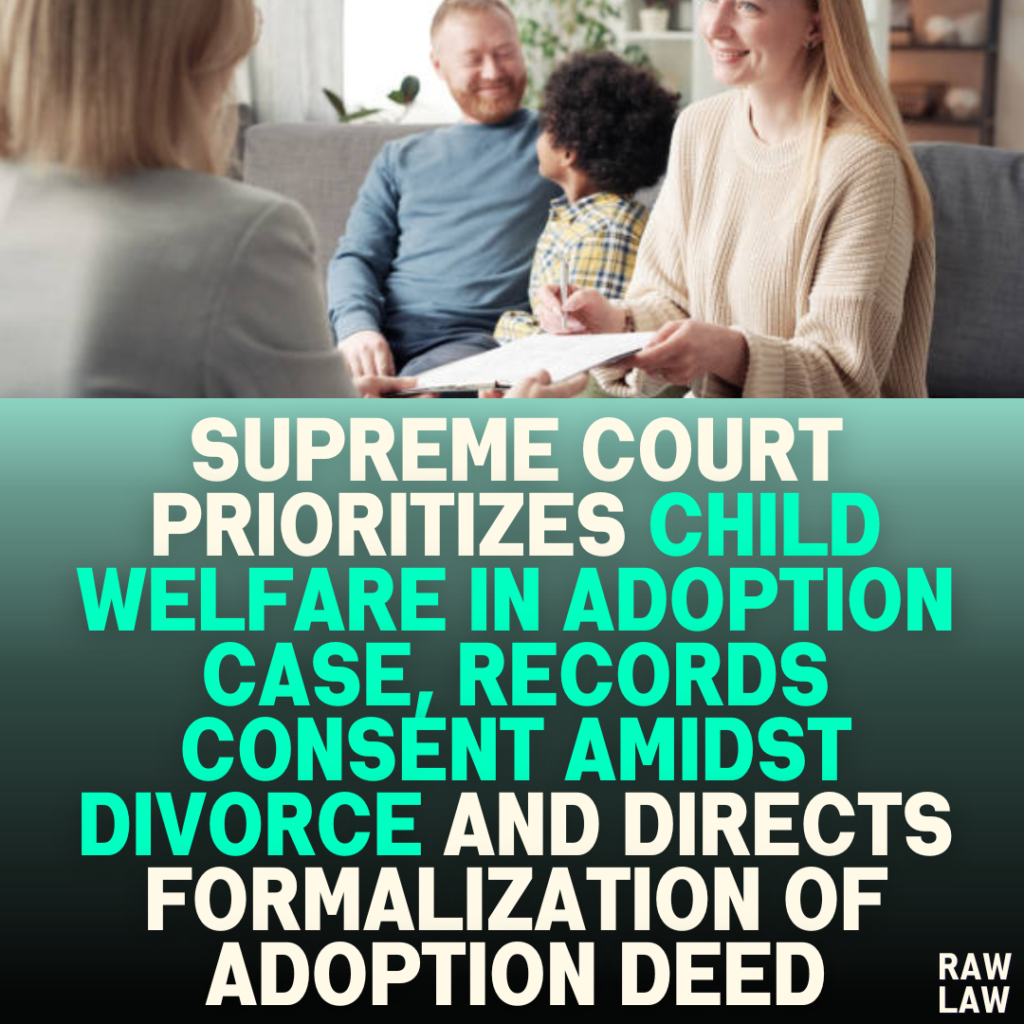Court’s Decision:
The Supreme Court recorded the consent of the second respondent (the father) for the adoption of the minor child by the petitioner (the biological mother) and her current spouse. The court directed the petitioner’s spouse to file an undertaking within a week, agreeing to the adoption arrangement. Once the deed of adoption is formalized, the court ordered all relevant authorities to act in accordance with the adoption agreement.
Facts:
The case revolves around a divorce decree granted by the Family Court at Karkardooma, Delhi, in 2016. The petitioner and the second respondent had divorced by mutual consent, and both have since remarried. The issue in dispute was the adoption of their minor son. The petitioner expressed that her spouse was willing to adopt the child.
Issues:
- Whether the consent of the second respondent (father) could be obtained for the adoption of the minor child.
- How the adoption process should proceed given the mutual agreement between the parties.
Petitioner’s Arguments:
The petitioner, who is the biological mother of the child, stated that her spouse is willing to adopt the child and sought the court’s approval for the adoption arrangement.
Respondent’s Arguments:
The second respondent, through senior counsel, conveyed his no objection to the adoption of the minor child by the petitioner’s current spouse.
Analysis of the Law:
The court examined Section 9(2) of the Hindu Adoption and Maintenance Act, 1956, which gives both parents equal rights to consent to the adoption of their child. In this case, the court recognized the mutual agreement of both parents regarding the adoption.
Precedent Analysis:
No specific precedents were cited in the judgment.
Court’s Reasoning:
The court took into account the consent of both parties and the amicable resolution of the issue, noting that there was no need to delve into the merits of any unrelated allegations. The primary concern was the welfare of the child and the mutual agreement between the parents.
Conclusion:
The court directed that an undertaking be filed by the petitioner’s spouse within a week, confirming his commitment to adopt the child. Upon the completion of the adoption deed, the authorities were instructed to implement the adoption accordingly. The petition was disposed of, and pending applications were also closed.
Implications:
The ruling emphasizes the importance of mutual consent in child adoption cases, especially following a divorce. It underscores the court’s role in ensuring that adoption arrangements prioritize the best interests of the child and are facilitated smoothly when both parents are in agreement.
